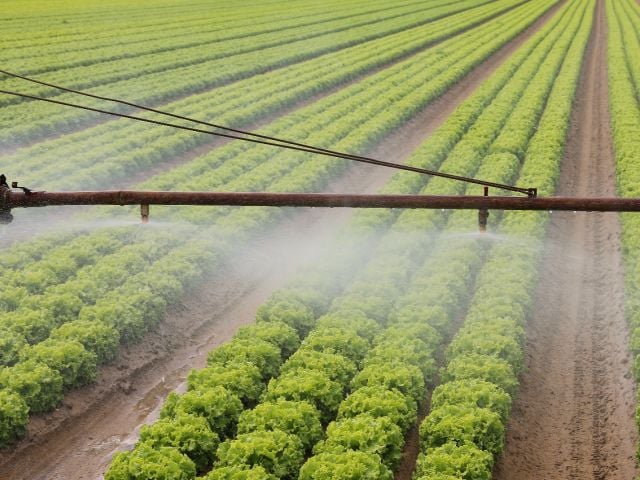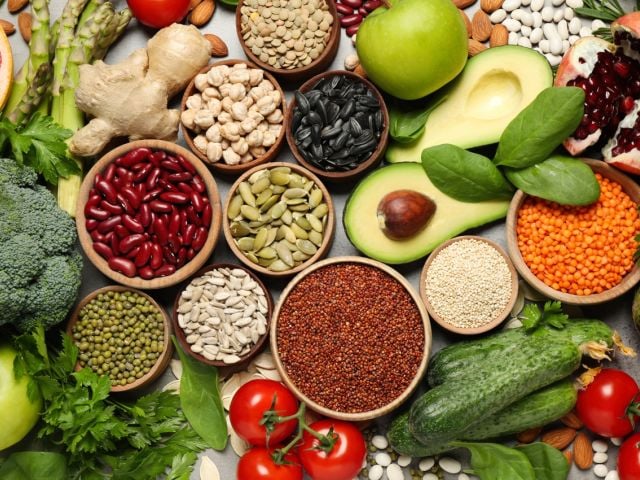Below is testimony submitted for the record to the Senate Agriculture Committee for the hearing “Opportunities in Global and Local Markets, Specialty Crops, and Organics: Perspectives for the 2018 Farm Bill.” EWG suggests that Congress could better position American farmers and ranchers to meet the growing domestic and global demand for organic foods by making modest changes to conservation programs in the next farm bill. Such changes would better meet the needs of producers who want to transition to organic.
--
Testimony for the Record
of
Environmental Working Group
on
Opportunities in Global and Local Markets, Specialty Crops, and Organics:
Perspectives for the 2018 Farm Bill
before the
Senate Committee on Agriculture, Nutrition and Forestry
On July 13, 2017
Congress could better position American farmers and ranchers to meet the growing domestic and global demand for organic foods by making modest changes to conservation programs in the next farm bill. This could help better meet the needs of producers who want to transition to organic.
Driven in large part by the multiple environmental and health benefits, Americans’ appetites for organic food are seemingly insatiable. In less than two decades, sales in the organic sector have grown from $3.7 billion in 1997 to more than $46 billion in 2016. This double-digit growth nearly every year makes the organic sector one of the fastest growing segments of the food industry.
Despite the rapid growth of the organic industry and the price premiums enjoyed by organic farmers, domestic production of organic food has significantly lagged behind consumer demand. Currently, consumers’ demand for organic food far outstrips domestic supply – so much so that major retailers like Costco report they sell out of organic products faster than they can get them.
The gap between supply and demand means many American organic food companies have turned to foreign suppliers to meet demand for staples like soybeans, corn and rice. According to analysis by the Organic Trade Association of data from the U.S. Department of Agriculture’s Global Agricultural Trade System, in 2014 the U.S. imported roughly $1.2 billion worth of organic products. For comparison, organic exports were roughly $550 million.
While the U.S. proudly stands as the largest producer of conventional soybeans and corn in the world, in 2015 the U.S. imported more than $240 million of organic soybeans and $112 million of organic corn.[1] According to the USDA’s most recent Census of Agriculture, roughly 0.6 percent of American farms and farm acres were classified as organic. In 2011, organic corn acres were 0.3 percent of the total corn acres in the U.S. and organic soybeans were 0.2 percent of the total soybean acres in the U.S.
As demand for organic food continues to soar, Congress can play a role in better positioning American farmers to meet it, by prioritizing increasing the number of organic farms and amount of organic acreage. In March, EWG issued a report recommending that Congress make modest changes to conservation programs in the 2018 Farm Bill to better meet the needs of producers who want to transition to organic farming.
In particular, we suggest that Congress:
- Reform the Conservation Stewardship Program to create “bundles” of conservation practices specific to producers wishing to transition to organic.
- Reform the Environmental Quality Incentives Program Organic Initiative to provide organic and transitioning producers with the same level of support as producers in the general funding pool.
- Reform the Conservation Reserve Program to provide greater incentives for producers to put farmland exiting the program into organic production.
With these small changes,[2] Congress could better position American farmers and ranchers to meet the growing demand for organic foods, and help reduce America’s dependence on imported organic goods.
[1] EWG, from the USDA Foreign Agricultural Service's Global Agricultural Trade System
[2] In addition to the reforms called for in EWG’s report, Congress should maintain strong support for existing programs that keep the organic sector competitive, including those related to research, data collection, certification cost sharing and extension, as well as funding for the USDA’s National Organic Program.



.jpg?h=827069f2&itok=jxjHWjz5)